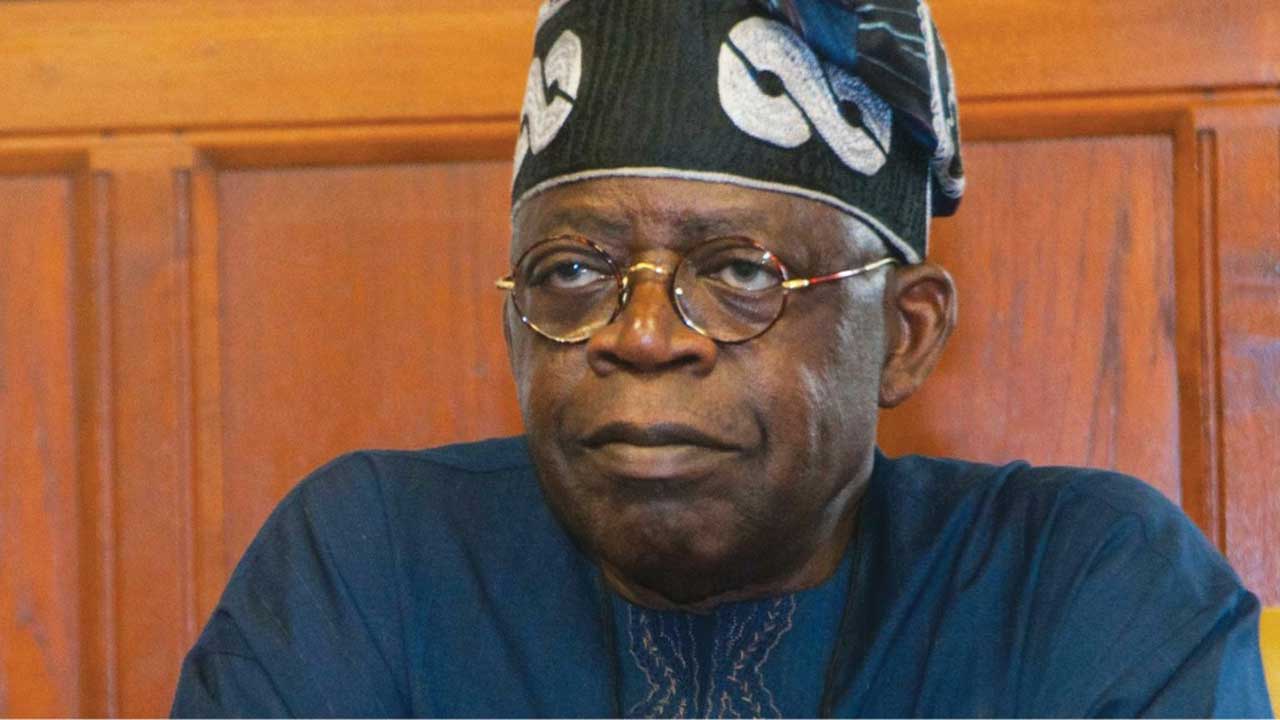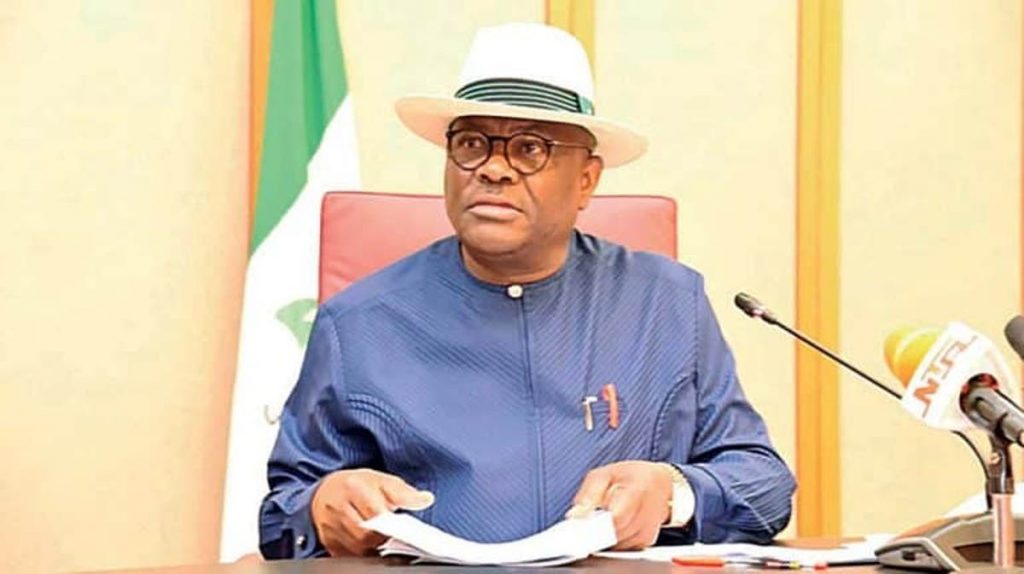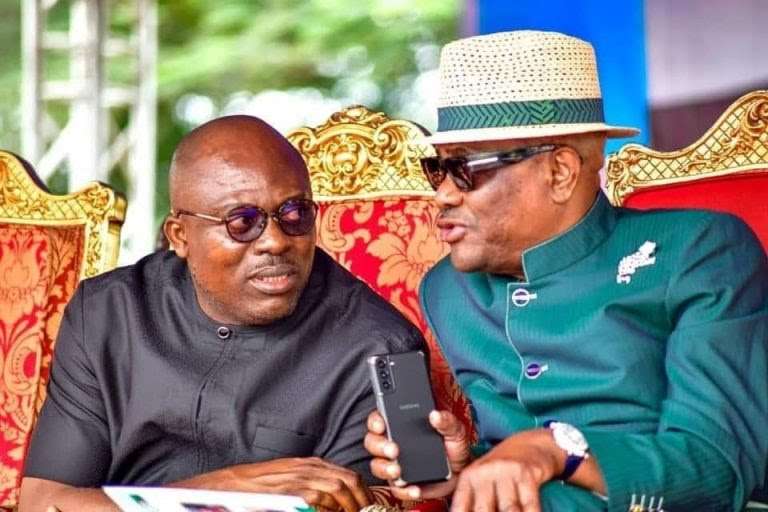Politics
2023 Polls: How Division In APC Threatens Tinubu’s Victory

The implementation of the Naira redesign policy and the resultant scarcity of the new notes appear to be tearing the ruling All Progressives Congress (APC) apart.
On Friday, a protest broke out in Oyo State capital, Ibadan, as people attacked banks and other locations. Earlier in the week, a protest also broke out in Benin City, Edo State, Enugu as well as other States.
However, the biggest protest has been coming from within the ruling party, as Bola Tinubu, the presidential candidate of the party took the first salvo during a rally in Ogun State.
READ ALSO: Villa Elements: Lai Mohammed Knows Those I’m Referring To – El-Rufai
During the rally in Abeokuta, Tinubu said the redesigning of the Naira is directly targeted at his presidential ambition. He also maintained the same position in Ekiti State during the party’s rally.
In the last 72 hours, Governor Nasir El-rufai of Kaduna State has been on media rounds— he has spoken to Channels TV, TVC, Arise TV and BBC. On each appearance, the message has been the same: some elements in the Villa are conspiring against Mr Tinubu.
Some of the comments by the Kaduna State governor fueled speculations that the “Villa Cabals” are backing Vice President Yemi Osinbajo, who contested against Tinubu but lost.
However, in subsequent interviews, El-rufai clarified that the VP is not part of the people sabotaging the party.
“This is not the policy of our candidate (Bola Tinubu), this is the policy of fifth columnists. They want to bring us down, they want to bring this country down,” El-rufai had said during the interview on Channels TV.
Apart from El-rufai, other associates of Mr Tinubu also made some media rounds. Minister of Works and Housing, Babatunde Fashola was on Instagram Live discussing the campaign, while Ajuri Ngalale held nothing back during an interview.
Ngalale accused the CBN governor, Godwin Emefiele of presenting a poor policy direction to president Buhari.
“The outcome of the policy wasn’t what Emefiele initially presented to the President,” he said during an interview.
It would be recalled that the VP has also criticized the implementation of the policy.
Osinbajo, during a meeting with some players in the Fintech sector, said Nigerians are suffering the impact of the scarcity of the new notes.
While applying pressure, some governors of the APC equally met with the president behind closed doors on Friday: however, the president insisted on seeing through the February 10 deadline. Shortly after the meeting, Emefiele also announced that there will be no further extension.
The no-extension stance of President Buhari and Emefiele appears to be consistent with the candidate of the Peoples Democratic Party, Atiku Abubakar, who asked the CBN not to extend the deadline beyond the fixed date.
Many within the ruling party are concerned that the impact of the policy may affect their chances at the polls considering how the PDP and New Nigeria Peoples Party (NNPP) are making a push into the Northwest.
“Asiwaju is coming to terms with the impact of this policy on the election, therefore, he is pushing the Southwest base. The crowd in Osun was a statement, then Ekiti again. He is sending a message,” Ibrahim Gbadamosi, the coordinator of Asiwaju Grassroots Support told Daily Post.
“There is an uptick here, the fact the Asiwaju spoke up— he opened up the conversation around it. And look at it, the governors, particularly the Northern governors are solidly behind him. So there is no reason to be worried.
READ ALSO: JUST IN: Aso Rock ‘Elements’ Working Against Tinubu’s Victory – El-Rufai
“We have six states in Southwest, we are optimistic of about five States in Northcentral, three States in Northeast and still strong in Northwest. In fact, we are pushing in States in Southsouth and Southeast.” He said.
Despite the optimism in the camp of the ruling party, many believe that the hardship associated with the swap of Naira may further weaken the chances of the ruling party.
DAILY POST
Politics
PANDEF Wades Into Rivers Crisis, Sets Up Seven-member Mediation Team
Politics
Wike: Why Removing Fubara Will Be Difficult – Ex-Commissioner

A former Rivers State Commissioner for Information and Communication, Austin Tam-George, has said that attempts to impeach Governor Siminalayi Fubara would be difficult to sustain, citing what he described as the governor’s performance record and the lack of concrete allegations against him.
Tam-George made the remarks on Thursday while speaking on Prime Time on Arise Television, arguing that the impeachment process being initiated against Fubara was to scuttle his chance for a second term.
According to him, Governor Fubara has continued to place the needs of the people at the centre of his administration, with visible interventions in rural development, housing, education and healthcare.
He said this, in his view, has made it difficult for opponents to justify moves to remove the governor from office.
READ ALSO:Rivers Crisis: Bad People Won’t Prevail Over Us – Wike
Tam-George also called on the All Progressives Congress, APC, to intervene, arguing that the party should not allow what he described as the humiliation of a sitting governor.
He said: “Well, all I think he needs to do is to do exactly what he’s been doing from the beginning, which is to place the people at the center of gravity of his administration, prioritize the needs of the people, so that the people can see the direct impact of government action in their lives.
“And that’s exactly what he’s doing in terms of rural development, in terms of housing sector transformation, which I mentioned that he is doing the same in education sector and in health.
“So if he continues, if he persists in placing the people’s need at the center of focus of his administration, there is no way they are going to be able to justify this kind of shenanigans.
READ ALSO:BREAKING: Rivers Assembly Initiates Impeachment Proceedings Against Gov Fubara
“Because, if you look very carefully at the so called articles of impeachment, you will see that there is no specificity in terms of any infraction by the governor or his deputy.
“What they are trying to do is to make sure they scuttle the administration so that the governor doesn’t then get to the point where he will be seeking a second term.
“Let me be clear, just two days ago, Nyesom Wike was at one of the local governments, and he made it clear in a moment of epiphany, he made it clear that, look, if Governor Fubara were to get a second term in office, it will amount to his own political burial.
READ ALSO:[BREAKING] Fubara Vs Wike: Tension As Rivers House Of Assembly Suddenly Resumes Plenary
“So all of these things that we are seeing the so called impeachment proceedings they’ve initiated, it’s actually an effort to try to scuttle the prospects of the governor coming for a second term, and I don’t see how they will succeed.
“If you look at the so called articles of impeachment, as I said, they lack specificity in terms of the kind of infraction that they allege that the governor has committed. He has done nothing wrong, and they will see how the process will play out.
“My sense, and in fact, if I were to advise the governor, my sense is that he should just maintain the people, retain the people at the center of gravity of his administration, meet their needs, run a transparent administration as he always done, and then the truth will come out, and he will be able to defend the administration.
“I think the the governing APC should also step in because they can’t possibly allow the governor of the office with probably one of the best performance records in the country to be humiliated by some of these members of the assembly.”
Politics
Wike A ‘Pestilence’ On Rivers, I Resigned Because Of It – Ex-Commissioner

Austin Tam George, a former Rivers State Commissioner for Information and Communication, has described the Minister of the Federal Capital Territory, Nyesom Wike, as a destabilising force in Rivers State, accusing him of attempting to exert godfatherism over the state’s political affairs.
He argued that the move to impeach the governor is a calculated attempt to reassert political control and reduce Fubara’s growing influence.
Tam George, who served under Wike’s administration, made the remarks on Thursday while speaking on Prime Time on Arise Television.
He said he resigned as commissioner due to what he described as Wike’s propensity for chaos and instability and the reduction of governance to a personality-driven system.
READ ALSO:Rivers: Fubara Cancelled 10,000 Jobs I Initiated For Youths – Wike Alleges
According to him, the current political tension in the state is the culmination of Wike’s long-standing approach to power, which he said is now manifesting in efforts to control the state for personal political influence.
He said: “Nyesom Wike has been a complete pestilence on Rivers state. I served in his administration as commissioner for information. As you know, I resigned precisely because of these, his propensity for chaos, for instability and reducing government to a personality cult, more or less. And I’m so disappointed that this propensity has now crystallized today to a stage where the state is now held by the juggler by person who thinks that he will be political godfather over the rest of Rivers state.
“But what I think is going to happen in this final phase of this struggle is that Rivers’ people ultimately are going to resist and defeat this tendency to want to privatize the state, to want to capture the state for his own personal aggrandizement.
“Governor Fubara has been an excellent administrator. I have to say he’s spending money building people’s capacity, lifting communities out of poverty. Money you would have expected that he would have diverted to political godfathers are now being spent in critical sectors such as education, where he’s completely transforming the sector, in health where almost all the tertiary health care systems are revived, 122 primary health care centers spread across the 23 local government areas.
READ ALSO:APC Leaders, Tinubu/Shettima Group Call For Wike’s Removal As FCT Minister
“There is a total transformation happening on a sector by sector basis, and this has endeared the governor to the people of the state.
“Now there is a strong likelihood that he may be seeking a second term to expand his legacy and to consolidate his achievements for the benefit of all. And this will mean that there is going to be, you know, a reduction of Wike’s influence.
“So what you see as an impeachment move is an attempt to try to reassert what they consider to be their leverage against the governor.”

 News3 days ago
News3 days agoHow To Calculate Your Taxable Income

 Business5 days ago
Business5 days agoNNPCL Reduces Fuel Price Again

 Metro5 days ago
Metro5 days agoAAU Disowns Students Over Protest

 Headline3 days ago
Headline3 days agoRussia Deploys Navy To Guard Venezuelan Oil Tanker Chased By US In Atlantic

 Metro3 days ago
Metro3 days agoJUST IN: Court Grants Malami, Wife, Son N500m Bail Each

 Metro3 days ago
Metro3 days agoEdo widow-lawyer Diabolically Blinded Over Contract Seeks Okpebholo’s Intervention

 Metro5 days ago
Metro5 days agoEdo: Suspected Kidnappers Kill Victim, Hold On To Elder Brother

 Entertainment3 days ago
Entertainment3 days agoVIDEO: ‘Baba Oko Bournvita,’ Portable Drags His Father, Alleges Bad Parenting, Extortion

 Metro5 days ago
Metro5 days agoNine Soldiers Feared Dead In Borno IED Explosion

 Politics3 days ago
Politics3 days ago2027: Details Of PDP Leaders, Jonathan’s Meeting Emerge

































